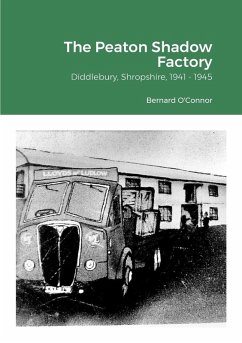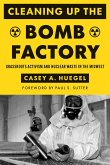Before the Second World War, the British Air Ministry needed more aircraft . An arrangement was made with motor manufacturers to make aircraft components. The Shadow Factory Scheme was introduced whereby experienced automobile engineers 'shadowed' aircraft engineers to learn their skills. Existing machines were modified and specialised new equipment was installed in the motor works. Hurry Water Heaters of Birmingham had a contract to make the fuel tanks for Short Stirling bombers. The finished products were taken to be fitted in the Austin Motor Company's Works in Bromsgrove. 'When Hurry's factory was bombed, the undamaged machinery and many of their skilled welders and riveters were relocated to an empty cow house in the remote hamlet of Peaton, near Diddlebury, Shropshire. Local men and women were recruited and between 1941 and 1945, fuel tanks were made and transported by lorry to the 'Aero' works where they were fitted into the wings and tail planes of the Stirlings. Bernard O'Connor has researched the history of this shadow factory using accounts found in local history books and magazines and interviews with local people who remembered it.
Bitte wählen Sie Ihr Anliegen aus.
Rechnungen
Retourenschein anfordern
Bestellstatus
Storno








